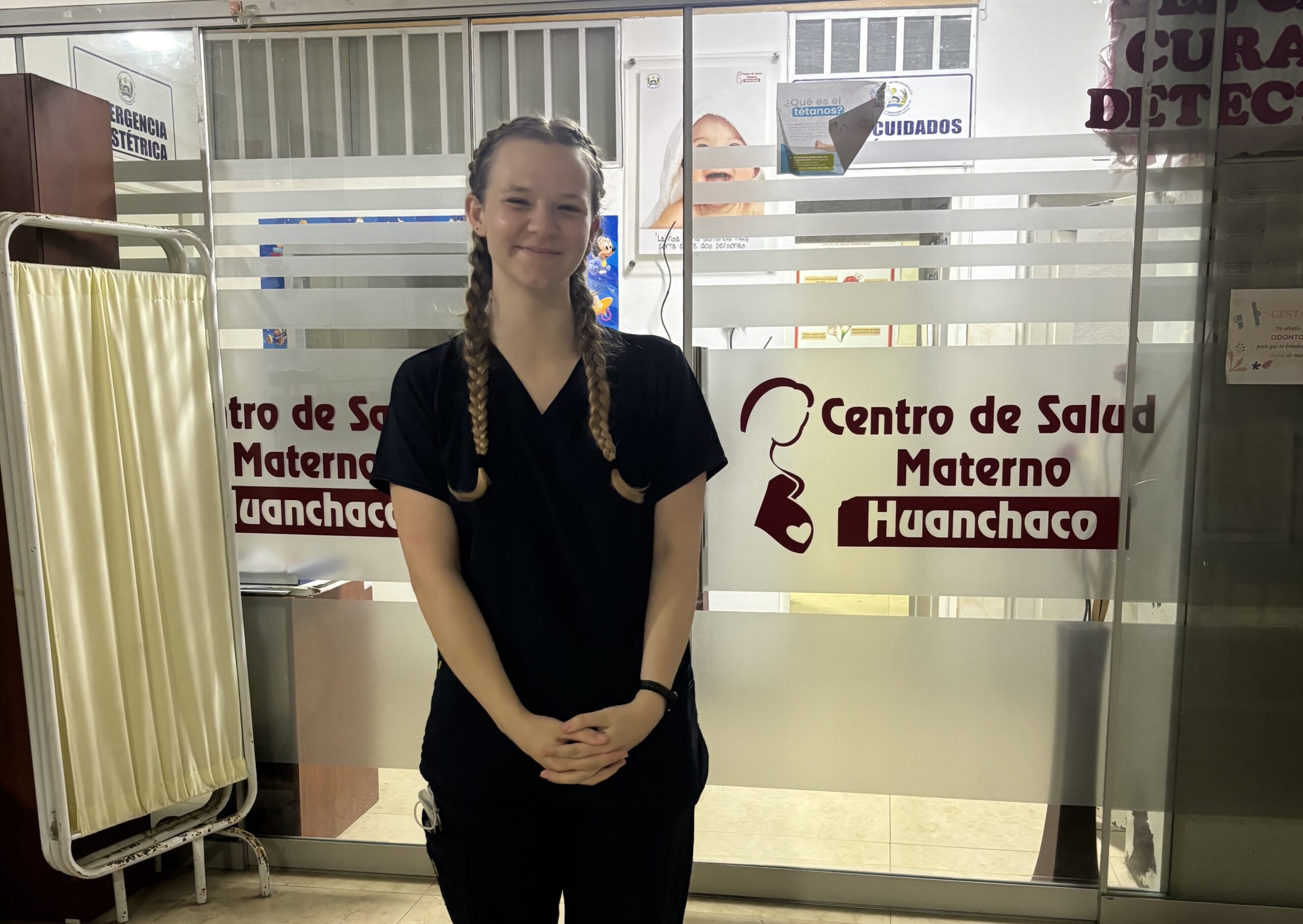In summer 2024, UNC Morehead Cain Scholar, and volunteer doula, Savannah O’Brien, completed a 2 month internship with Hands on Peru. Read her thoughts below.
“As an aspiring obstetrician, my experience with HOP revealed dimensions of healthcare that go beyond classroom learning: the critical importance of building relationships within the community, advocating deeply for patients’ needs, prioritizing education and preventative care, and tackling healthcare inequities firsthand. Healthcare is a human right, and I am grateful that organizations such as HOP help to extend healthcare access and education to all people.”
Hands on Peru provided an exceptional opportunity to explore different aspects of global health care! I was incredibly excited to apply my skills as a birth doula by working with mothers in the local community. As I am used to working in a hospital where doulas have an established presence and access to abundant materials (heating pads, soaps, chapstick, beverages, food, warm blankets, fans, essential oils, ice packs, etc.), it was both challenging and fun to think of creative solutions to, within my ability as a doula, create a safe and empowering birth environment, centered on the mother’s needs. Bringing supplies from the store and, with kind permission, items from the community clinic (such as massage materials) to the small hospital was extremely helpful. Next, adjusting to the power dynamics of the hospital was vital to developing a trusting relationship with physicians and nurses that would enable me to help the patient. By the time we were in the delivery room, I felt confidant reaffirming medical decisions as in the patient’s best interest with the nurse and communicating, to the best of my ability with limited spanish, what was happening to the patient. Something that was shocking that I had to overcome was the high rate of episiotomies for first-time mothers in Peru. As such, I struggled to balance my training and education which taught me to question unnecessary medical procedures that would potentially harm the patient, especially considering the limited access of patients in this rural area to clean water and soap to prevent infections, with the expertise of local medical professionals. Ultimately, I asked the provider if an episiotomy was absolutely necessary or if the patient could push longer. Once assured that it was the best option, I leaned into my role, offering encouragement, communicating compassionately, and providing reassurance in that vulnerable moment. Recognizing my limitations in offering medical advice, I focused on my ability to support, comfort, and advocate within my doula role.
While my experience as a birth doula was the most exciting and fulfilling experience in Peru, there were so many varying experiences that opened my eyes to new aspects of healthcare. For example, helping with sexual education courses in local schools reminded me of the importance of preventative healthcare and the power of community education. I further developed these skills by creating educational materials and a presentation describing important information during pregnancy, birth, and postpartum periods. In creating these materials, I prioritized expanding skills of self-advocacy, as many women in Peru do not have access to doula support, and the power hierarchy of the medical system that I witnessed suggested that many women do not have the power to communicate needs, desires, and consent during the birth process. Women were often told, “it’s time for your episiotomy,” rather than talked through what an episiotomy was, how it was preformed, why it was necessary, and if there were any alternatives. To challenge this structure, I wanted to give women the vocabulary and knowledge to advocate for themselves in these vulnerable situations, giving them power over their body and birth experiences.
To guide the development of community resources, Hands on Peru gave me the opportunity and assistance to develop, give, and analyze surveys of women in the community we served. These women were incredibly vulnerable and brave in sharing their reproductive stories, good and bad. I learned how to approach working directly with communities; it’s absolutely vital to develop a relationship with community members, understand their needs, and understand what role they feel comfortable with you playing in their lives. I was happy that HOP gave me the ability to develop relationships with community members by working with the child nutrition education program, ultrasounds, physical therapy, the knitting program, and more before working on my specific project. I also appreciate the care HOP takes in collecting information regarding the needs of the community they are serving. Going to the clinic brought me so much joy every time, seeing the children’s faces light up and mothers bonding and people getting the medical care and advice that they deserve. As an aspiring obstetrician, my experience with HOP revealed dimensions of healthcare that go beyond classroom learning: the critical importance of building relationships within the community, advocating deeply for patients’ needs, prioritizing education and preventative care, and tackling healthcare inequities firsthand. Healthcare is a human right, and I am grateful that organizations such as HOP help to extend healthcare access and education to all people.
October 27, 2024

